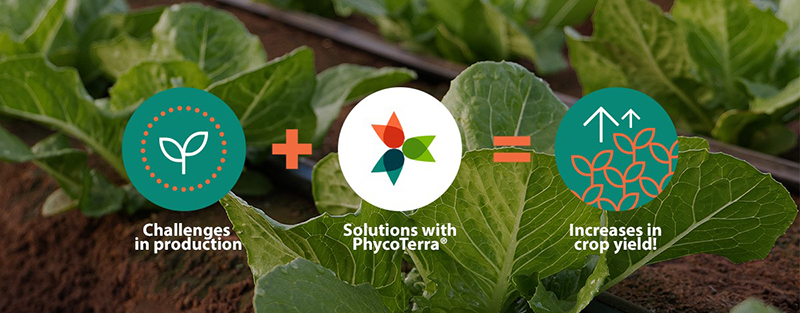What to Know When Purchasing New or Used Farm Equipment
Whether it’s brand new or just new to you, purchasing a piece of farm equipment requires a great deal of planning, foresight, and attention to detail. Knowing what questions you need to ask before buying and evaluating your budget and the cost/benefit of the new piece of machinery are just some of the steps to take before making this particular business investment.
To help sort out the finer details, Michael Gunderson, Associate Professor of Economics at Purdue University, provides insight and tips to keep in mind to make sure you’re making the best decision for your operation.

Michael Gunderson
Determine Your Needs
Before making any major purchase, determine what your equipment needs are, Gunderson says.
“The needs for operating 1,000 acres are going to be much different than operating 10,000 acres,” he explains.
“Once you understand what you’re going to need the piece of equipment for and what scale, then you can talk to the equipment dealers about what’s going to best suit your needs.”
Being able to articulate your requirements to the dealer will help them tailor that piece of equipment to your particular requirements, which can keep you from buying a piece of machinery that is either too big or that has add-ons you may not end up using.
Decide: New vs. Used
Making the decision to buy a new or used piece of equipment should be the next step in the purchasing process, Gunderson says.
Because technology has advanced so rapidly in recent years, machinery that was around even 10 years ago may not have the specific tools you need to stay competitive in today’s marketplace. According to Gunderson, the costs associated with retrofitting or adding onto a used piece of equipment to stay abreast with technology may meet or exceed the cost of purchasing a new piece of equipment.
So when might a used piece of equipment actually be a good choice? It depends on your goal, Gunderson says.
“Some are into owning equipment because they enjoy taking care of it. If you’re that type of producer, buying a new piece of equipment and keeping it for a long time probably makes a lot of sense,” he explains. “But, let’s say seed genetics is your passion. In this instance, having the biggest, newest, shiniest tractor doesn’t make a whole lot of sense. You can buy a used tractor and have a local dealership work on it.”
Ask yourself how long you want to hold onto a piece of equipment and how much technology you’re looking for. These are two good questions to help determine if new or used is your best bet, Gunderson says.
Closely Inspect Your Equipment
If you’ve decided to go with used machinery, you will need to closely evaluate your piece of equipment for any wear and tear. If you’re buying from a local dealer, that dealership should have information on the history of the machine. For example, the dealership should know how many times it has been serviced and how many hours it has been used.
“You’ll also want to take a look at the physical appearance. And if you’re buying from a dealer or reseller, you might even ask them to take it in for inspection from a trusted equipment dealership and see what the status of that piece of equipment is,” Gunderson says.
While hours might be a good way to stack up one piece of machinery against another, that factor doesn’t always tell the whole story.
“Not all tractors with 5,000 hours on them are the same. A tractor that was driven with 5,000 hours without a single oil change is a lot different than a tractor that was driven for 5,000 hours and had the appropriate maintenance and care,” he explains.
Analyze Cost Benefit Analysis
To determine whether a piece of equipment is worth the cost, take a look at what Gunderson refers to as the “cash-flow perspective.”
“How big are the payments going to be on the piece of equipment? Do you have the cash flow to pay for the loan payments? Does that piece of equipment help you be more productive? How does it help you achieve the goals of your business?” Gunderson asks.
Thinking about the length of the loan term is another consideration. If your loan is going to take a long time to pay back, it may not be a worthwhile investment, he says. However, by working with a trusted lender, you might be able to uncover some options that can not only lower the cost of borrowing, but also how long you have to repay the loan.
If at the end of the day you have a good projection of cash flow, good loan terms, and you can see how the equipment will allow you to produce more efficiently and save on costs, the purchase is probably a good decision.
Running On A Tight Budget
For beginning farmers, there is perhaps more capital constraint than for seasoned veterans, and for this reason, Gunderson suggests leasing equipment as a possible option.
“If you’re in a position where you don’t have a lot of cash to invest, leasing may make a lot of sense. You want to pay attention to the terms of the lease relative to ownership. Sometimes the lease terms may be too expensive, or sometimes you may get a really good deal,” he says.
Long-Term Goals
Gunderson’s final words of advice: Don’t be penny wise and pound foolish.
“Sometimes you might try to cut costs, but if you’re trying to operate on large amounts of land, equipment probably isn’t the place where you want to do that,” he says.
Ask yourself if having the right technology on your piece of equipment is better than deciding to buy something because the cost is low and you can afford it, Gunderson adds.
“The real question is: Can you afford it in the long run in terms of being competitive? Agricultural prices aren’t headed back to $6 for a bushel of corn any time soon, so you still have to be productive and get the most out of the equipment you buy,” Gunderson says.








